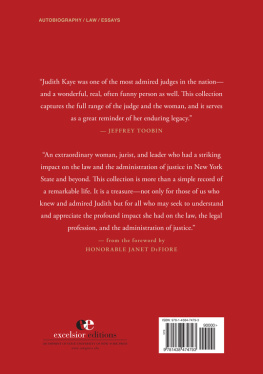M. M. Kaye - The Far Pavilions
Here you can read online M. M. Kaye - The Far Pavilions full text of the book (entire story) in english for free. Download pdf and epub, get meaning, cover and reviews about this ebook. year: 1978, publisher: Penguin Books, genre: Art. Description of the work, (preface) as well as reviews are available. Best literature library LitArk.com created for fans of good reading and offers a wide selection of genres:
Romance novel
Science fiction
Adventure
Detective
Science
History
Home and family
Prose
Art
Politics
Computer
Non-fiction
Religion
Business
Children
Humor
Choose a favorite category and find really read worthwhile books. Enjoy immersion in the world of imagination, feel the emotions of the characters or learn something new for yourself, make an fascinating discovery.

The Far Pavilions: summary, description and annotation
We offer to read an annotation, description, summary or preface (depends on what the author of the book "The Far Pavilions" wrote himself). If you haven't found the necessary information about the book — write in the comments, we will try to find it.
The Far Pavilions — read online for free the complete book (whole text) full work
Below is the text of the book, divided by pages. System saving the place of the last page read, allows you to conveniently read the book "The Far Pavilions" online for free, without having to search again every time where you left off. Put a bookmark, and you can go to the page where you finished reading at any time.
Font size:
Interval:
Bookmark:
The Far Pavilions
The International Bestseller!
More than a million copies sold in paperback!
Novel scarcely describes the book, a massive, meticulously researched and fascinating saga about the British in India, encompassing a quarter of a century from the Mutiny up to war with ferocious Afghan tribesmen Sunday Express
Incredible Observer
For me the find of the year was The Far Pavilions Harry Secombe
A triumph Spectator
Magnificent not one of its 950 pages is a page too much Evening Standard

ABOUT THE AUTHOR
M. M. Kaye was born in India and spent most of her childhood and much of her early married life in that country. Her ties with India are strong: her grandfather, father, brother and husband all served the Raj, and her grandfather's first cousin, Sir John Kaye, wrote the standard accounts of the Indian Mutiny and the first Afghan War. When India achieved independence her husband joined the British Army, and for the next nineteen years she followed the drum to all sorts of exciting places she would not otherwise have seen, including Kenya, Zanzibar, Egypt, Cyprus and Berlin. M. M. Kaye is known world-wide for her bestselling historical novels The Far Pavilions and Shadow of the Moon (both of which are published in Penguin), and Trade Wind; and for her detective novels Death in Berlin, Death in Kenya and Death in Cyprus (which are published in one volume by Penguin as Murder Abroad), and Death in Zanzibar, Death in Kashmir and Death in the Andamans (which are published together in Penguin as House of Shade). Penguin also publishes three volumes of autobiography: The Sun in the Morning, Golden Afternoon and Enchanted Evening. M. M. Kaye has also written a children's story, The Ordinary Princess (1991).
 THE FAR PAVILIONS
THE FAR PAVILIONSM. M. KAYE
PENGUIN BOOKS
PENGUIN BOOKS
Published by the Penguin Group
Penguin Books Ltd, 80 Strand, London WC2R 0RL, England
Penguin Putnam Inc., 375 Hudson Street, New York, New York 10014, USA
Penguin Books Australia Ltd, 250 Camberwell Road, Camberwell, Victoria 3124, Australia
Penguin Books Canada Ltd, 10 Alcorn Avenue, Toronto, Ontario, Canada M4V 3B2
Penguin Books India (P) Ltd, 11 Community Centre, Panchsheel Park, New Delhi 110 017, India
Penguin Books (NZ) Ltd, Cnr Rosedale and Airborne Roads, Albany, Auckland, New Zealand
Penguin Books (South Africa) (Pty) Ltd, 24 Sturdee Avenue, Rosebank 2196, South Africa
Penguin Books Ltd, Registered Offices: 80 Strand, London WC2R 0RL, England
www.penguin.com
First published by Allen Lane 1978
Published in Penguin Books 1979
Copyright M. M. Kaye, 1978
All rights reserved
Plan of Kabul Residence (page ) drawn by Reginald Piggott
Except in the United States of America, this book is sold subject to the condition that it shall not, by way of trade or otherwise, be lent, re-sold, hired out, or otherwise circulated without the publisher's prior consent in any form of binding or cover other than that in which it is published and without a similar condition including this condition being imposed on the subsequent purchaser
ISBN: 978-0-14-192713-8
TO
all those officers and men of different races and creeds who, since 1846, have served with such pride and devotion
in
THE CORPS OF GUIDES
among them
Lieutenant Walter Hamilton, V.C ., my husband Major General Goff Hamilton, and his father Colonel Bill Hamilton
We are the Pilgrims, Master: We shall go
Always a little further. It may be
Behind that last blue mountain topped with snow
Across that angry or that glimmering sea,
White on a throne, or guarded in a cave
There lives a prophet who can understand
Why men are born
James Elroy Flecker
T'is not too late to seek a newer world.
Tennyson
A glossary of Indian words appears on
 1
1Ashton Hilary Akbar Pelham-Martyn was born in a camp near the crest of a pass in the Himalayas, and subsequently christened in a patent canvas bucket.
His first cry competed manfully with the snarling call of a leopard on the hillside below, and his first breath had been a lungful of the cold air that blew down from the far rampart of the mountains, bringing with it a clean scent of snow and pine-needles to thin the reek of hot lamp-oil, the smell of blood and sweat, and the pungent odour of pack-ponies.
Isobel had shivered as the icy draught lifted the tent-flap and swayed the flame in the smoke-grimed hurricane lamp, and listening to her son's lusty cries had said weakly: He doesn't sound like a premature baby, does he? I suppose I I must have miscalculated
She had: and it was a miscalculation that was to cost her dear. There are few of us, after all, who are called upon to pay for such errors with our lives.
By the standards of the day, which were those of Victoria and her Albert, Isobel Ashton was held to be a shockingly unconventional young woman, and there had been a number of raised eyebrows and censorious comments when she had arrived in the cantonment of Peshawar, on the North-West Frontier of India, in the year of the Great Exhibition, orphaned, unmarried and twenty-one, with the avowed intention of keeping house for her only remaining relative, her bachelor brother William, who had recently been appointed to the newly raised Corps of Guides.
The eyebrows had risen even further when a year later she had married Professor Hilary Pelham-Martyn, the well-known linguist, ethnologist and botanist, and departed with him on a leisurely, planless exploration of the plains and foothills of Hindustan, unaccompanied by so much as a single female attendant.
Hilary was middle-aged and eccentric, and no one least of all himself was ever able to decide why he should suddenly have elected to marry a portionless, though admittedly pretty girl, less than half his age and quite unacquainted with the East; or, having remained a bachelor for so many years, married at all. Isobel's reasons, in the opinion of Peshawar society, were more easily explained: Hilary was rich enough to live as he pleased, and his published works had already made his name known in scholarly circles throughout the civilized world. Miss Ashton, they decided, had done very well for herself.
But Isobel had not married for the sake of money or ambition. Despite her forthright manner she was both impetuous and intensely romantic, and Hilary's mode of life struck her as being the very epitome of Romance. What could be more entrancing than a carefree nomadic existence camping, moving, exploring strange places and the ruins of forgotten empires, sleeping under canvas or the open sky, and giving no thought to the conventions and restriction of the modern world? There was also another, and perhaps more compelling consideration: the need to escape from an intolerable situation.
It had been frustrating in the extreme to arrive unheralded in India only to discover that her brother, far from being pleased to see her, was not only appalled by the prospect of having his sister on his hands, but quite incapable of offering her so much as a roof over her head. The Guides at that time were almost continuously in action against the Frontier tribes and seldom able to live peaceably in their cantonment at Mardan, and both William and the Regiment had been dismayed by Isobel's arrival. Between them they had managed to arrange temporary accommodation for her in the house of a Colonel and Mrs Pemberthy in Peshawar. But this had not been a success.
Next pageFont size:
Interval:
Bookmark:
Similar books «The Far Pavilions»
Look at similar books to The Far Pavilions. We have selected literature similar in name and meaning in the hope of providing readers with more options to find new, interesting, not yet read works.
Discussion, reviews of the book The Far Pavilions and just readers' own opinions. Leave your comments, write what you think about the work, its meaning or the main characters. Specify what exactly you liked and what you didn't like, and why you think so.












